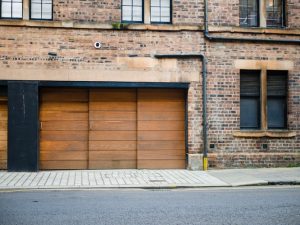Home insurance is one of the best ways to protect your residence from the unpredictable and unwelcome. And much as looking for insurance can be boring, finding the cheapest house insurance for over 50s can be rewarding.
Get a quote from Emerald Life today using our fast online quote form and see what you can save. Or if you would rather speak to someone then call now.
Insurance companies actually really love people in their 50s. On top of the fact that they make fewer claims, people aged over 50 are generally more truthful with their claims than younger homeowners.
If you want insurers to reduce your home insurance premiums, there are some actions you can take.
Table of Contents
How Insurers Calculate Your Home Insurance Cost
- Home rebuild cost
- Location
- Construction and build type
- Security
- Environment
- How you use your home
- The cover you need
- Your age – important in this case!
- Water sources, mining areas or other issues that could be a risk but are not specific to your property.
- Who lives in your home
Build Your No Claim Bonus
Insurers tend to reward those who don’t have a history of making claims. When you apply for home insurance, be sure to mention your claim-free years, for both building cover and content cover.
Your no claims discount can even have greater value than a pay-out for a smaller claim. To build up your no claim discount for future savings, it may be best not to make smaller claims, so be sure to do the maths.
Don’t Get More Cover Than You Need
Unless you have a mortgage or equity release product, buying buildings insurance isn’t an absolute must. Lenders typically insist on you having buildings insurance because it covers the complete cost of rebuilding your house.
Lenders or brokers often recommend their preferred insurance company to their clients, but you are actually free to go with a home insurance provider of your choice. If you live in a leasehold flat or would like to move into one, leaseholders are normally the ones who handle the building’s insurance if they also own a share of the freehold.
Keep in mind that the market value of your home is typically higher than the rebuild cost of your house. You can estimate the rebuild cost of your home here or you can check it in your survey documents.
Don’t Get Too Little Cover
Undervaluing your home contents and not getting the right cover can be just as big a mistake as getting too much cover. Each year we acquire new gadgets, clothes, kitchenware, furniture, and gym and gardening equipment.
You may need an increase in your home contents insurance, depending on the value of the belongings you keep in your house. You should review how much cover you have each year if you have valuable art, jewellery, and antiques in your home.
However, do note that overvaluing your belongings will end up costing you more. When it comes to single items, insurers often have a limit on payouts. If you have items that exceed that value, be sure to cover them as a specified item or discuss this with your insurer.
Consider a Combined Policy
If you buy contents and building insurance on a combined policy, most insurance companies will offer you a better quote. If it is not clear under which policy/section a claim falls, combined buildings and contents insurance will provide a seamless cover. This can be a huge advantage.
Be Aware of High Interest Rates
You may end up paying more over the long term if you opt for monthly payments—even though they seem like a good way to spread out the cost. Before you commit, make sure to study the difference in cost between annual and monthly payments.
Usually, it costs extra to pay in monthly instalments. Most insurers essentially loan the charge of the annual policy to homeowners, and, like proper lenders, charge them high interests via monthly payments.
However, some insurance companies don’t charge interest rates on monthly payments at all. Another option is to find a credit card that has a lower APR than the insurer and use it to pay for your policy. Either way, it is probably best to pay your home insurance annually.
Increase Your Excess
One of the best ways to reduce the premium you will pay for home insurance is to increase your excess. You can check how much you can reduce your premium by tweaking the excess level in online forms.
If you think you can afford to pay a higher excess in case you need to make a claim, you might want to take a chance on it. Again, instead of losing your no claims discount, paying for smaller repairs yourself may be more cost-efficient. Eventually, this will considerably reduce your premium levels.
Upgrade Your Home Security
You can significantly reduce your home insurance premiums if you invest more time and effort into improving the security of your home. For instance, you can potentially cut the cost of your home insurance by 5% if you join a community or neighbourhood watch. However, your options don’t end there:
Install security alarms: One of the best ways to improve home security is to turn your place into a smart home. You can cut down your home security premiums by installing a burglar alarm.
A remote live warning CCTV system integrated with a software solution may be your best option. There are many high-end smart home systems out there that are designed to deter intruders even before they set foot on your lawn. Even though these systems can be pricey, reduced premiums can make them a worthwhile investment – and there is a value to the deterrence. Ask your insurer if they take such measures into account.
Install smoke alarms: A smoke alarm is an essential home upgrade even without the benefit of getting cheaper home insurance. It is best to get a fire alarm system that connects to the mains.
Be sure to test your smoke alarms weekly. Keep in mind that you will need to replace them every five years. It’s best to install one smoke alarm on each floor.
Upgrade door and window locks: You can get cheaper home insurance if you get door and window locks that meet British Standards. Naturally, they will also make it harder for intruders to break into your property.
Takeaway
Homeowners in their 50s can greatly reduce the cost of their home insurance if they take the time to research their options. If you are a homeowner in your 50s, chances are you can buy yourself peace of mind for a much lower price than you first though.
About the author: Kevin has gone through an extensive home renovation with his son, which he has both thoroughly enjoyed, and dreaded every morning. He is now the proud owner of half his dream house (the other half has been waiting for spring). You can read more of Kevin’s work on PlainHelp.



